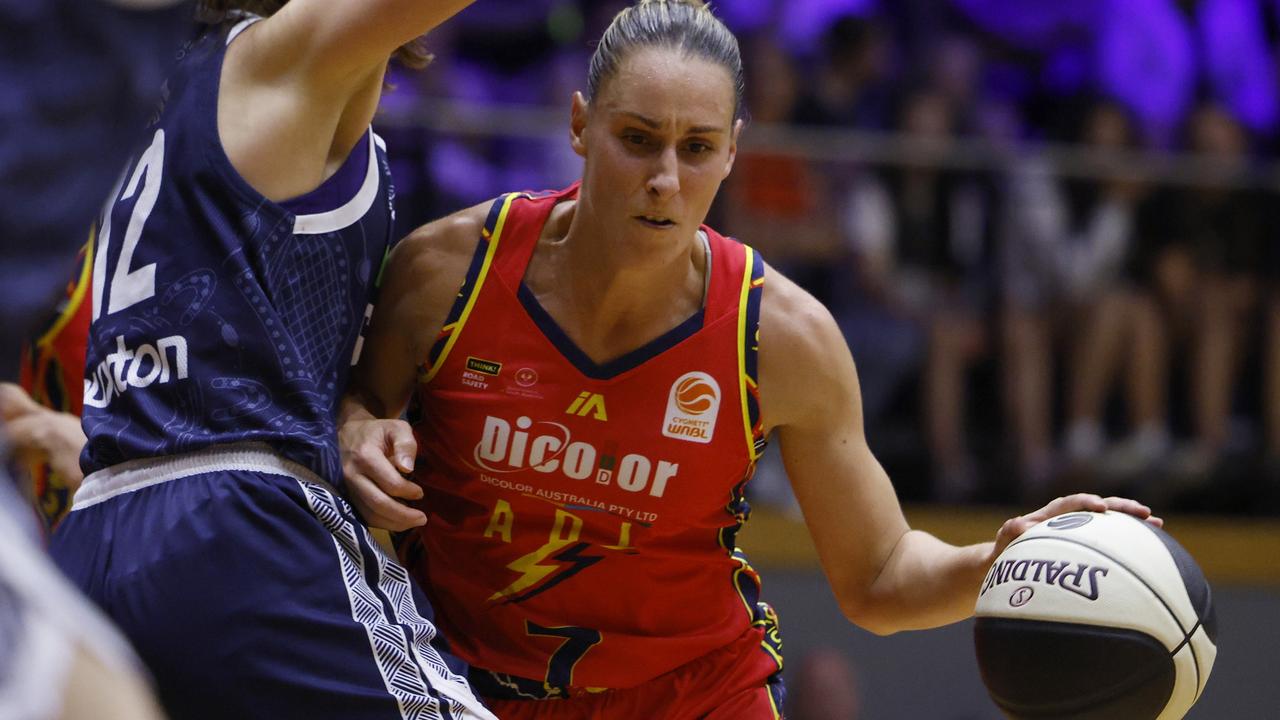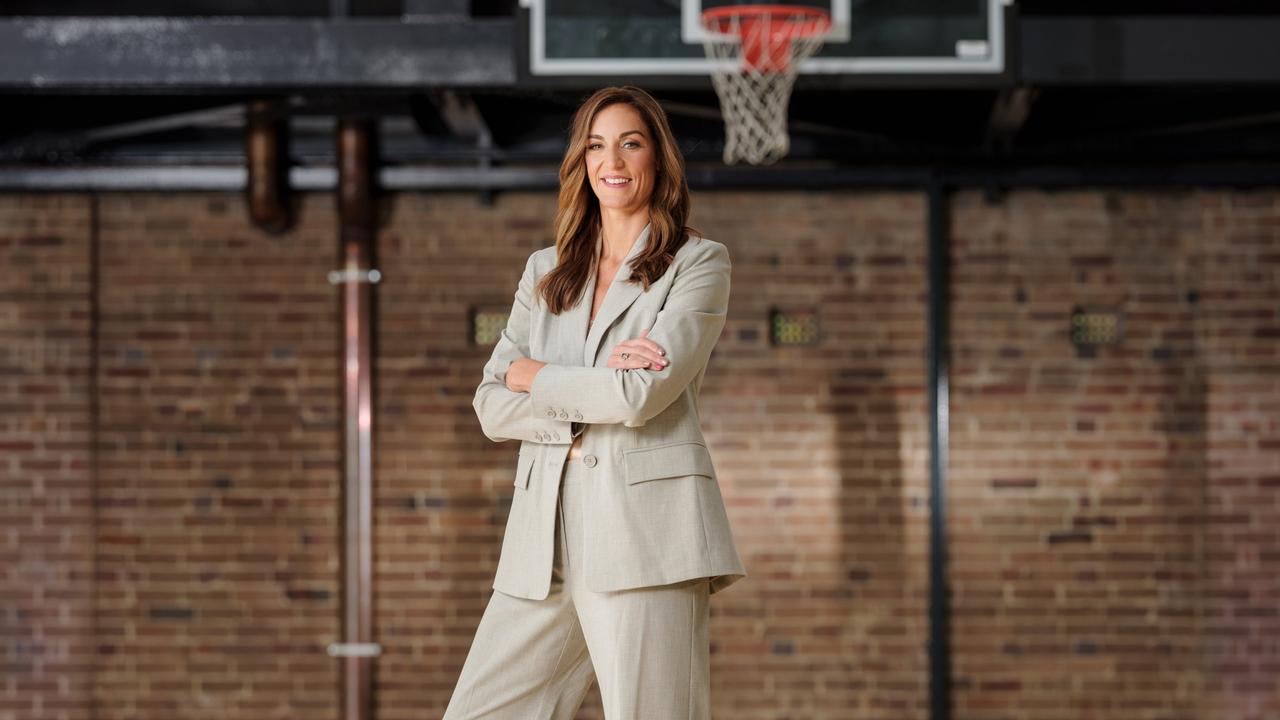FIFA Women’s World Cup: Are there enough female coaches?
For all the good the FIFA Women’s World Cup has done, there is one issue it has exposed which can’t be ignored — a lack of female coaches. What can be done to fix the problem?
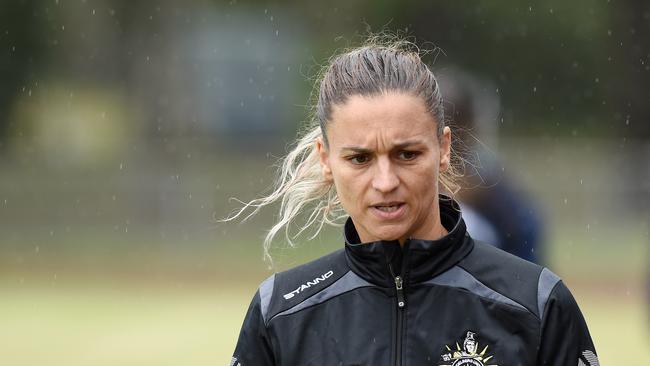
CODE Insight
Don't miss out on the headlines from CODE Insight. Followed categories will be added to My News.
The World Cup in Australia and New Zealand has showcased the strides made in women’s football on the field in recent years — while exposing the lack of female coaches at all levels of the sport.
As the tournament heads into the quarter-finals, England boss Sarina Wiegman is the only woman left on the touchline.
The first 32-team Women’s World Cup began with 12 woman coaches. That’s 37.5 per cent, exactly the same as at the World Cup in 2019, when nine of the 24 teams in France had a woman at the helm.
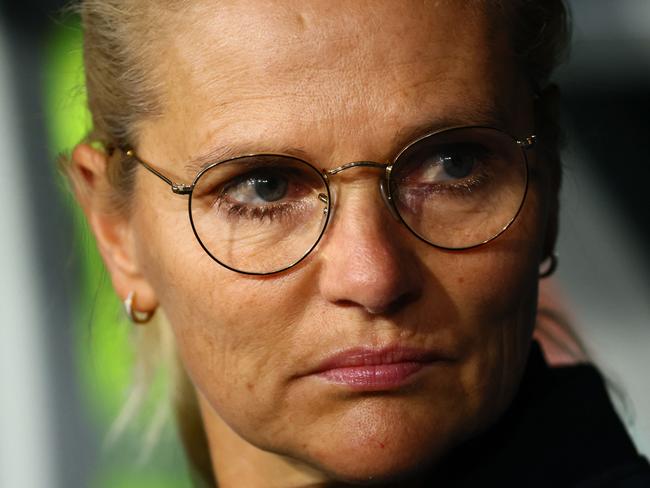
“It is a problem not only on the international stage but at every level in the women’s game,” said Randy Waldrum, the American coach of the Nigeria team that lost on penalties to Wiegman’s England in the last 16.
“We need more women coaching in the sport.”
In England, where women’s football is highly professional, five of the 12 teams in the Women’s Super League finished last season with a woman manager.
In some other countries, including at the World Cup, women’s football has only recently turned professional or even remains an amateur sport.
Many within the game believe that more woman coaches will inevitably filter through once women’s football has had longer to take hold.
“There’s naturally more male coaches,” Wales manager Gemma Grainger told Sky Sports earlier this year.
“The men’s game has been professional for much longer and we see that transfer of male coaches into the women’s game, and that’s the state we’re at in this moment.”
The hope is that the ratio will grow in the coming years, especially if current players convert to coaching when their careers end.
Although the proportion of woman coaches at this World Cup is the same as four years ago, there are hints of isolated progress.
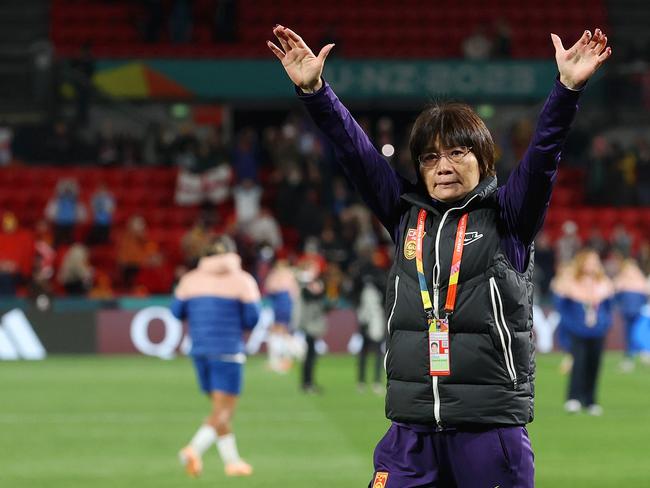
Shui Qingxia played for China at the inaugural Women’s World Cup in 1991 and was in charge of the team at this edition, becoming the first woman to coach China.
“What we hope is that that balance gets right in the future and we are working on that, at least in England,” said Wiegman.
“And I know in a lot of other countries too, to give opportunities to have more women in the game and hopefully also more coaches in the game.”
Wiegman is the standard-bearer for female managers, having won the European Championship with her native Netherlands in 2017 before taking them to the World Cup final two years later.
She then won the Euro again last year with England.
The Lionesses are favourites to lift the World Cup in Australia and New Zealand, and if they do, Wiegman will be the third woman coach in a row to win it.
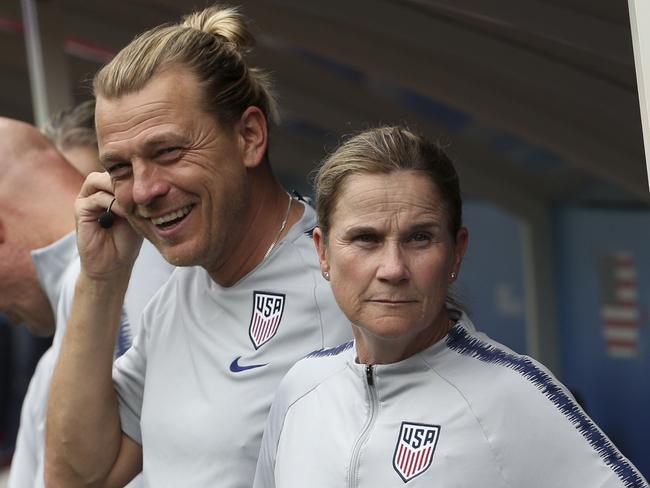
The USA lifted back-to-back World Cups in 2015 and 2019 under Jill Ellis.
At the previous three Olympics, Bev Priestman with Canada, Silvia Neid (Germany) and Pia Sundhage (United States) have all managed teams to gold.
The 2019 Women’s World Cup final was the second, after 2003, to feature a woman in both dugouts.
That will not be repeated this year after Hege Riise’s Norway, Inka Grings’ Switzerland and Desiree Ellis’s South Africa were all beaten in the last 16.
Waldrum, who has spent much of his career coaching women’s teams at college level in the United States, said there needed to be investment and a change of mindset.
“It is not that men shouldn’t be coaching,” said Waldrum, who also had a spell in charge of Trinidad and Tobago.
“I think that if they love the women’s game and they are invested in it, then we should have the opportunity to do it, but certainly we need bigger investment in women and women coaching.”
He said it was also a question of “changing the old boys’ club mentality too. That women can coach and can be very effective”.
Jamaica’s Lorne Donaldson said that nothing should be read into the dominance of male coaches in the latter stages of this year’s tournament.
“It is just one of those things that happened, that there is one female coach left,” he said.
“And she might turn around and win it all, who knows?”
‘FUND OUR F****** SPORT’: EX-MATILDAS’ VICIOUS ALBO ATTACK
Former Matilda Melissa Barbieri has attacked Prime Minister Anthony Albanese and the Australian government over a lack of funding for football.
Responding to reports that Australians could be treated to a public holiday should the Matildas claim World Cup glory on home soil, Barbieri raised the issue of wages for coaches and players in the men’s and women’s A-Leagues.
“Albanese keeps talking about this freaking public holiday - how about you just f***king fund our sport properly,” Barbieri wrote on Twitter.
“35 weeks to play ALeague for a minimum $25k for a female which most are on is not ok.
“Coaches on min (wage) .. worse if you’re female… worse if you need food or petrol.”
The veteran goalkeeper, who was capped 86 times for Australia, was last month awarded the Alex Tobin medal for her contribution to Australian football.

WORLD CUP’S FAIRYTALE STORY PLOTS ENGLAND DOWNFALL
Colombia captain Catalina Usme is “dreaming big” and coach Nelson Abadia wants to “make history” as the last team standing from the Americas plots the downfall of England in the Women’s World Cup quarter-finals.
The 25th-ranked South Americans have never made the last eight before but they are brimming with confidence after grinding down Jamaica 1-0 on Tuesday thanks to a goal from their skipper.
They will now play England in Sydney on Saturday and are fearless, having beaten world number two Germany in the group stage.
“Because of their football and their history we need to be careful, we need to be cautious,” Abadia said of Sarina Wiegman’s strongly fancied England.
“But in football we have already seen that the gaps between teams have been closing down and Colombia have proven to be a solid team.
“Of course, England are one of the favourites, that goes without saying -- they are the European champions.
“But we also faced Germany, who were second favourites. We were wise enough and had the composure.”
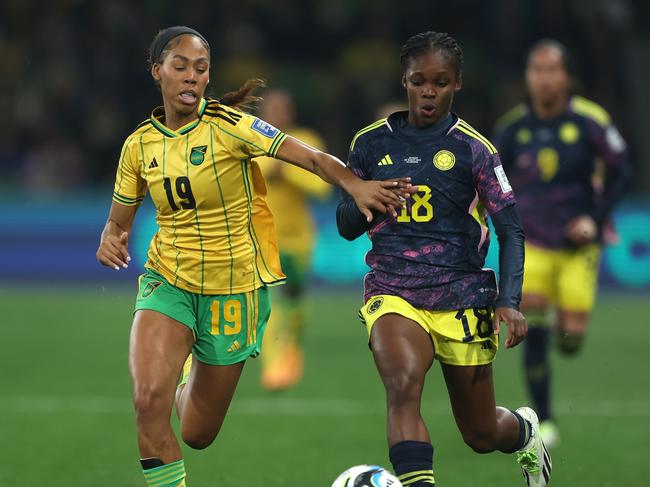
Colombia’s intense, attacking mindset has served them well so far, with their teenage striker Linda Caicedo one of the stars of the tournament.
But Usme is the glue that keeps them together and she said they were in no mood to stop now.
“We want more,” she said, having scored the goal to take Colombia into the last eight.
“It’s not our ceiling, now we are thinking about England, which is going to be a dream match.
“We need to be calm, play an intelligent match, but with the certainty that we can achieve more in this World Cup.
“We are dreaming big -- we can do this,” she added.
Abadia has been in charge since 2017 and after failing to qualify for the last tournament in France, has nurtured the likes of Caicedo into the players they are today.
The 67-year-old has made no secret of their intention to at least reach the final and match the feat of Brazil in 2007, when they were runners-up to Germany.
No South American team has won the Women’s World Cup.
“When we qualified for the World Cup the first thing I said to my team is that we are not here just to spend some time -- we want to make history and it is better to make history than to tell history,” he said.
“We have consolidated a very strong group, both for the technical staff and for the players.
“We brought the 23 best players from our country and we know how mature, how good they are.”
—AFP
MATILDAS ROCKET INTO WORLD CUP CONTENTION
Julian Linden
Written off as long shots before the tournament began, the Matildas have rocketed into genuine World Cup contenders with a reminder to their rivals they haven’t peaked yet.
Already through to the quarter-finals and improving leaps and bounds with every match they play, the return of superstar Sam Kerr has convinced the naysayers that anything is possible.
Mary Fowler, the team’s blossoming young attacker, has always been a believer and has no doubt the best is yet to come as the team prepares for Saturday’s showdown with France in Brisbane.
“I think every game we can do better,” she said.
“I think the most important thing for us is winning our battles and I think that‘s what we’ve done so far.
“Even when we‘re not playing maybe the most prettiest football, we’re still working hard for each other.”
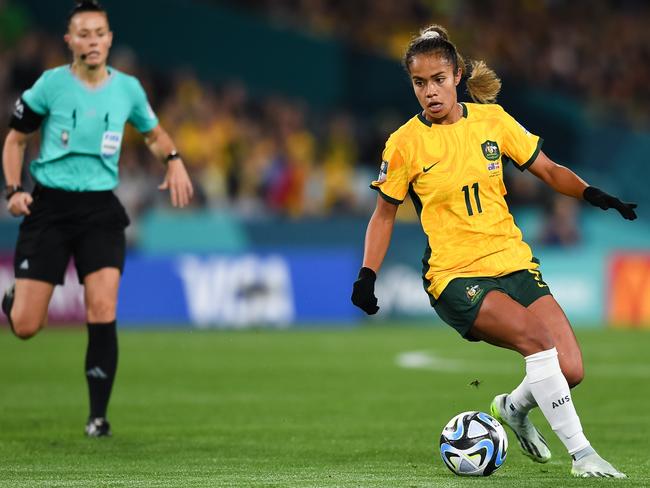
It’s that old-fashioned Aussie mindset - of everyone pitching in and working for their mates - that has suddenly got everyone thinking the Matildas can go all the way.
But it’s not just one-eyed Aussie fans starting to believe, even the number-crunching geeks are now seeing green and gold flashing up on their screens.
Global sports data giant Gracenote has run over 1 million simulations through its computer systems to try and predict the winner — and the forecasts are wild.
The shock results so far have already made this the most open women’s World Cup ever, with only one previous champion (Japan) still standing among the eight surviving teams, meaning teams like Australia are right in the mix.
“The surprise early eliminations of the world‘s top two ranked teams, USA and Germany have opened up World Cup 2023 for other teams who have never won the competition or even reached the final before,” Gracenote’s head of analysis Simon Gleave said.
“Australia‘s home advantage has now boosted the Matildas to the third most likely team to win the competition and marginal favouritism against France in the quarter-finals.“
England are the computer’s top pick after surviving a penalty shootout against Nigeria to reach the quarter-finals and would play the Matildas in a blockbuster semi if both teams advance.
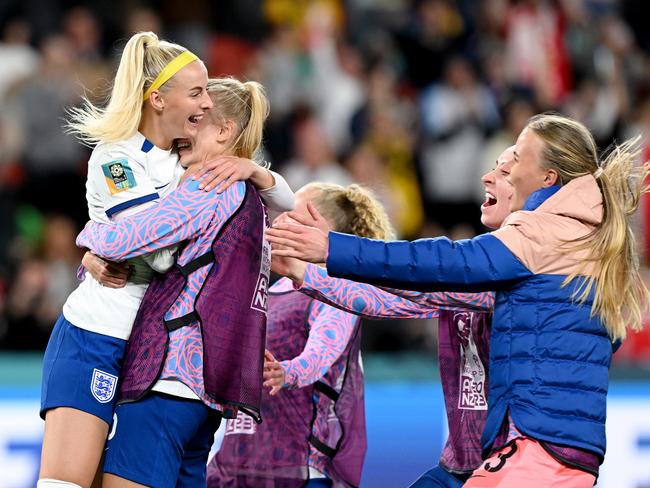
“It‘s actually really nice to see some teams that you probably wouldn’t have expected to get this far,” Fowler said.
“It just shows the growth women‘s football is having and the level that’s improving. So I think it’s been quite refreshing to see.”
Matildas’ midfielder Katrina Gorry said the unpredictable nature of the tournament was proof the sport’s old word order was being tipped on its head.
“Football‘s developed so much in so many different countries and I don’t think there’s a top ten anymore,” she said.
“It‘s going so much further beyond that. And I think this World Cup has really shown that any country that steps out there can take it to any team.
“It‘s pretty scary what’s going to happen definitely to the top ten ranking and moving forward to the next few games. Watching some of it is definitely crazy.”
While the return of Kerr - who missed the pool phase because of a calf injury - has given the Matildas a huge lift, experienced midfielder Emily van Egmond said the real strength of the side was that so many women were contributing to the cause.
With Kerr still cooling her heels on the bench before her late cameo, the Matildas sealed a convincing 2-0 win over Denmark on Monday after Fowler set up speedy winger Caitlin Foord for a spectacular opener.
“Caitlin’s an absolute weapon, she’s shown that for many years,” van Egmond said.
“I think right now she‘s in fine form. She’s killing it out there and I couldn’t be prouder as a teammate and a close friend.
“We can take this form from every single player out there at the moment and hopefully put that together for a complete performance in the next round.”
SIGHT FOR SORE EYES: SIMON RETURNS TO TRAINING
By Erin Smith
Sam Kerr was among the players taking part in a light training session at QSAC on Wednesday while the 11 others took part in a recovery session.
The on field session was for the 12 players who played the least amount of minutes against Denmark on Monday night.
With the quarter final clash against France on Saturday players were only doing a light session today.
In promising signs Kerr started the session with her boots on- showing off her multi sports skills with some basketball and AFL techniques with a football.
Kyah Simon, yet to play any minutes, was also training with her boots on with the main squad.
In the first 15 minutes, that media were able to observe, the players completed a range of static and dynamic stretches.
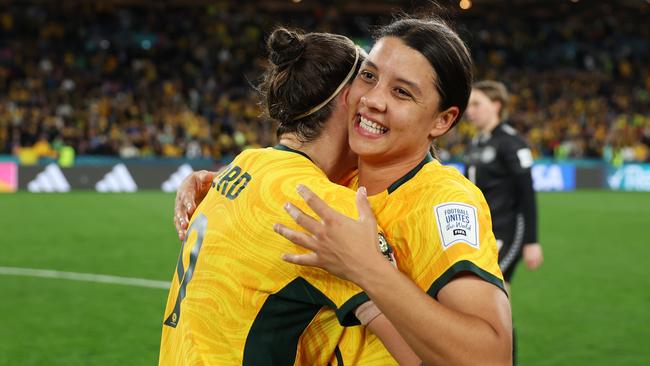
NIGERIA EXPOSE WORLD CUP INEQUALITY
Nigeria’s women’s football team fresh from an impressive run to the last 16 of the World Cup are demanding, with the support of FIFPRO, that their national federation “honour their commitments” and pay them outstanding bonuses and expenses.
The Super Falcons resumed their battle with the federation after they bowed out of the World Cup losing on penalties to European champions England on Monday.
Their build-up to this year’s tournament was overshadowed by a row with their national federation over bonuses.
They had even threatened to boycott their opening game but put that behind them to draw with Olympic champions Canada and then beat co-hosts Australia.
Coach Randy Waldrum lashed out at the national football association before the tournament, claiming years of wages had gone unpaid to players and himself.
He told the On the Whistle podcast: “What keeps me going are the players. Otherwise, I would have quit this job long ago.
“Up until about three weeks ago, I had been owed about 14 months’ salary. And then they paid seven months’ salary. We still have players that haven’t been paid since two years ago, when we played the summer series in the USA. It’s a travesty.”
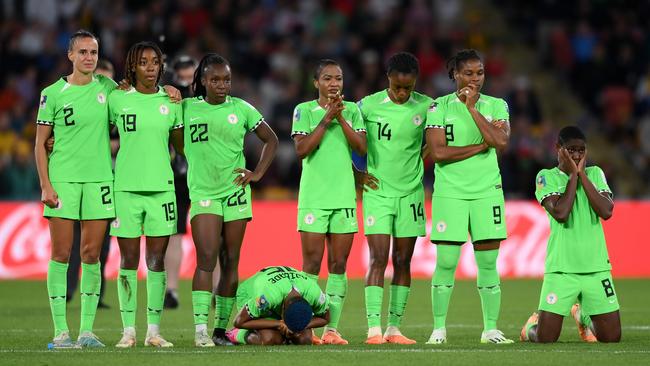
After their exit, Nigeria attacker Ifeoma Onumonu revealed the team has no gym in their training camp in Nigeria and players sometimes have to ‘share beds’.
“I’ve seen what (resources) England have access to,” said the forward, per the Guardian.
“In Nigeria we don’t have access to much. Our training fields aren’t great. Where we sleep isn’t great. Sometimes we share beds.
“It’s not good enough. In terms of recovery, we don’t have much of any of that. We don’t have access to a gym in camp in Nigeria.
“There’s a lot that needs to be done. Hopefully more people start to talk about it. Coming here it’s hard to adjust. We do what we can because we love playing for our country but hopefully they make it easier for us to do our best.”
She added: “[Back home] the [pitches] aren’t great. The grass is rocky, bumps everywhere. The stadium we play on for qualifying – you’d be surprised. I was surprised. You don’t even know where the ball is going to jump at you.
“Our under‑20s went far in their World Cup and when they were sent home they were sleeping in airports for 24 hours. That’s not acceptable. What we have to fight for is bigger for us.”
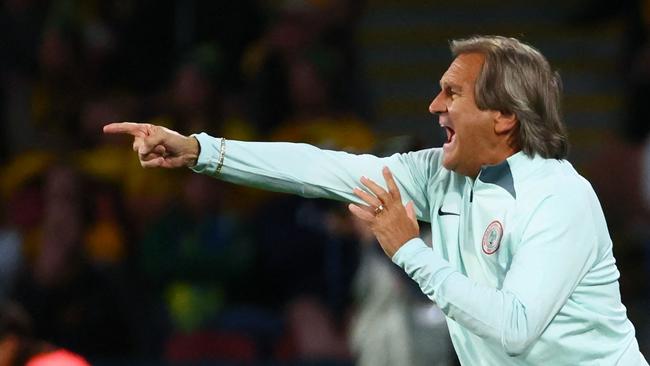
However, on Tuesday the team and FIFPRO -- who represent professional footballers -- released a statement saying the matter was far from over.
“FIFPRO can confirm it is assisting players in a disagreement with the Nigeria Football Federation concerning bonus payments, camp allowances and expenses, some of which date back to 2021.
“During the World Cup, the players expressed the desire to remain focused on their performance without making public statements or facing other distractions.
“However, the Super Falcons believe that it is now time for the Nigeria Football Federation to honour their commitments and pay the outstanding amounts.” Nigeria have appeared at every Women’s World Cup going back to the inaugural edition in 1991, but the 2023 vintage said they found it “regrettable” they needed to confront their federation.
“The team is extremely frustrated that they have had to pursue the Nigeria Football Federation for these payments before and during the tournament and may have to continue doing so afterwards,” read the statement.
“It is regrettable that players needed to challenge their own federation at such an important time in their careers.
“FIFPRO will continue to work with the players to ensure their contractual rights are honoured and the outstanding payments are settled.”
More Coverage
Originally published as FIFA Women’s World Cup: Are there enough female coaches?



